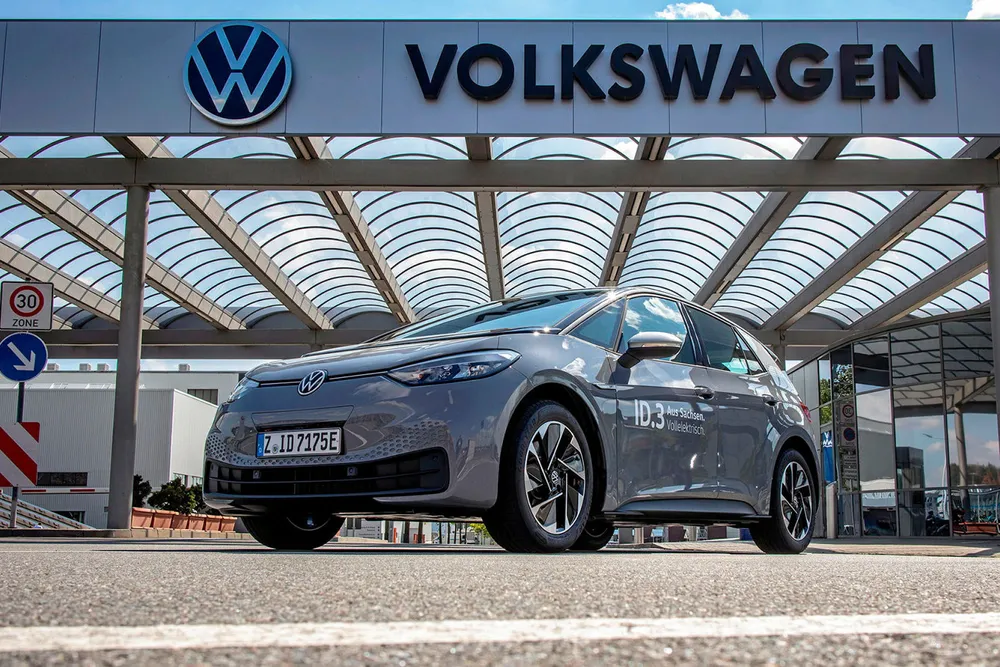VW takes on Tesla in race for giant batteries to store wind and solar power
Move comes as Germany grapples with wasted green power and negative electricity prices caused by a lack of energy storage

German carmaker Volkswagen is entering the energy storage market with plans to use old electric vehicle batteries to store renewable power.
Volkswagen announced that its charging solutions subsidiary Elli will develop and operate large scale energy storage projects.
As a first step, Volkswagen said projects rated at 350MW with 700MWh of storage capacity are planned – with the first one coming online in Germany as soon as next year.
“Germany and Europe need sufficient storage solutions to meet the increasing demand and to compensate for the volatile feed-in of renewable energies,” said Volkswagen board member Thomas Schmall.
“Our investment in stationary battery storage systems is therefore a significant contribution to the sustainable transformation of the energy supply.”
At least the first plant Elli develops will have to use new batteries, he said, as Volkswagen does not currently have enough old ones on hand.
Volkswagen said that Germany currently has a mere gigawatt hour in storage capacity, meaning its first project alone could almost double that.
“The need for storage solutions is enormous,” it said.
In 2023, it said 10,500GWh of electricity was not generated from renewables due to a lack of storage – enough to power more than 3.2 million electric vehicles for a year.
To compensate for the volatility of wind and solar farms, Elli said it is estimated 100GWh of storage capacity is needed in Germany by 2030.